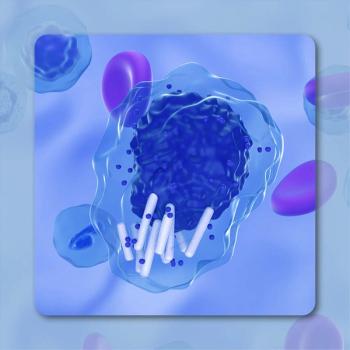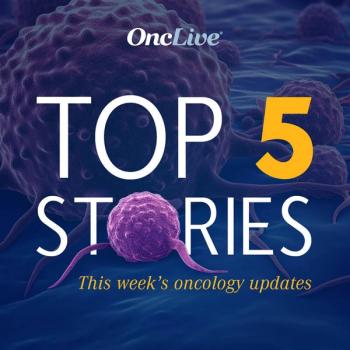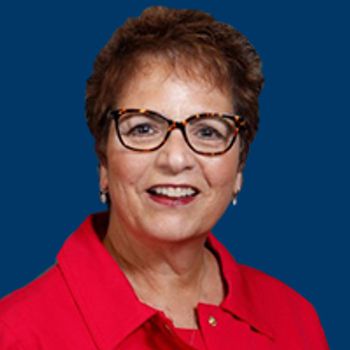
CCC19 Data Reveal Racial Disparities in Access to Remdesivir for Patients With Cancer and COVID-19
Remdesivir has been associated with a lower mortality rate for patients with cancer and the novel coronavirus disease compared with other agents under examination for this population.
Remdesivir (Veklury) has been associated with a lower mortality rate for patients with cancer and the novel coronavirus disease (COVID-19) compared with other agents under examination for this population; however, black patients were found to be half as likely to receive the drug compared with white patients, according to updated data from the COVID-19 and Cancer Consortium (
“Our study reinforces the finding that most COVID-19 treatment occurs outside the context of a formal clinical trial,” corresponding author Jeremy Warner, MD, MS, an associate professor of Medicine and Biomedical Informatics at Vanderbilt University, stated in a press release.2 “The exception to this was the drug remdesivir, which was given mostly through the clinical trial setting.”
Results showed that remdesivir monotherapy was linked with decreased 30-day all-cause mortality versus positive controls (adjusted odds ratio [aOR], 0.41; 95% CI, 0.17-0.99). The agent was also found to be numerically linked with a reduced likelihood of mortality versus negative controls; however, this was not determined to be statistically significant (aOR, 0.76; 95% CI, 0.31-1.85).
Multivariable logistic regression analysis revealed several characteristics linked with a decreased likelihood for receipt of treatment with the agent. These characteristics included: non-Hispanic Black patients versus non-Hispanic white patients (aOR, 0.56; 95% CI, 0.13-1.00), renal comorbidities (aOR, 0.32; 95% CI, 0.16-0.61), and an ECOG performance status of 2 or higher (aOR, 0.47; 95% CI, 0.24-0.90).
Moreover, data demonstrated that patients who lived in the US West were at increased likelihood of receiving the agent (aOR, 1.85; 95% CI, 1.09-3.15), while increased age was linked with a decreased likelihood of receipt (aOR, 0.87; 95% CI, 0.74-1.03); the latter did not reach statistical significance.
“It appears that black patients were underrepresented in the clinical trials of remdesivir, likely due to reasons other than purely clinical factors,” added Warner. “The unfortunate conclusion is that racial disparities in access to clinical trials continue to exist, and 1 of our recommendations is that the necessary steps to address such disparities need to be accelerated, especially given that black patients and other people of color appear to be taking the brunt of the COVID-19 pandemic.”
In a total of 2,186 adult patients with invasive cancer and a laboratory-confirmed COVID-19 infection, investigators set out to evaluate the association of investigational treatments for the virus and 30-day all-cause mortality, as well as factors linked with treatment.
Participants who met the inclusion criteria for the analysis were accrued between March 17, 2020 and June 26, 2020. The median patient age was 67 years and 51% of participants were non-Hispanic white (n = 1115). Of these patients, 47% were found to have mild COVID-19 infection (n = 1037), 40% had moderate infection (n = 876), and 12% has severe disease (n = 273).
Moreover, 51% of patients included in the study were in cancer remission (n = 1115), 28% had stable or responsive cancer (n = 607) and 11% had cancer that was actively progressing (n = 239). Thirty-four percent of patients had an ECOG performance status of 0 (n = 749), 26% had a performance status of 1 (n = 563), and 16% had a performance status of 2 or greater (n = 352).
Patients included in the analysis received the following investigational therapies for the virus, either alone or in combination: hydroxychloroquine, remdesivir, high-dose corticosteroids, and tocilizumab (Actemra). Twenty-five percent of patients received hydroxychloroquine (n = 538), 22% received azithromycin (n = 485), 6% received remdesivir (n = 124), 5% received high-dose corticosteroids (n = 109), 4% received tocilizumab (n = 94), and 4% received another type of therapy (n = 90). No treatment was reported for 60% of patients (n = 1321).
Of the patients with cancer who were given 1 or more treatments for COVID-19, hydroxychloroquine plus azithromycin was most commonly used (n = 203; 23%); this was followed by hydroxychloroquine monotherapy (n = 179; 21%), azithromycin monotherapy (n = 160; 18%), remdesivir monotherapy (n = 57; 7%), hydroxychloroquine plus azithromycin plus high-dose corticosteroids (n = 24; 3%), high-dose corticosteroids (n = 18; 2%), hydroxychloroquine plus tocilizumab (n = 18; 2%), and hydroxychloroquine plus azithromycin and tocilizumab (n = 18; 2%).
Additional results indicated that patients who received hydroxychloroquine in combination with other therapies experienced a statistically significant increase in their risk of 30-day all-cause mortality versus positive controls in matched and unmatched models (PSM aOR, 1.99; 95% CI, 1.29-3.08; unmatched aOR, 1.93; 95% CI, 1.27-2.94). However, when taken administered as a monotherapy, the agent was not found to be associated with increased risk (PSM aOR, 1.03; 95% CI, 0.62-1.73; unmatched aOR, 0.98; 95% CI, 0.59-1.62).
When compared with negative controls, findings proved to be comparable with an increased risk observed in those who received hydroxychloroquine in combination with any other therapy (PSM aOR, 2.15; 95% CI, 1.51-3.06; unmatched aOR, 2.05; 95% CI, 1.74-3.59), and no increased risk was noted for the use of the agent as a monotherapy.
Moreover, results from the report revealed that high-dose corticosteroids by themselves were numerically, but not significantly, linked with increased 30-day all-cause mortality when compared with negative controls (aOR, 2.8; 95% CI, 0.77-10.15). These drugs in combination with other therapies was linked with increased mortality when compared with positive and negative controls (aOR, 2.04; 95% CI, 1.19-3.49 and aOR, 3.16; 95% CI, 1.80-5.54, respectively).
The investigators noted that tocilizumab exposure was shared for descriptive purposes only and was not evaluated further because of an insufficient number of independent exposures.
When examining receipt of treatment, results indicated that hydroxychloroquine plus azithromycin was used less often in patients who resided in the US West (aOR, 0.34; 95% CI, 0.17-0.69); this was also true for those with cardiovascular conditions (aOR, 0.68; 95% CI, 0.48-0.98). In contrast, patients with renal conditions had increased likelihood of receiving the combination (aOR, 1.56; 95% CI, 1.09-2.23).
Factors associated with increased likelihood of receiving any investigational therapy included male sex (aOR 1.28; 95% CI, 1.04-1.56), obesity (aOR 1.44; 95% CI, 1.16-1.80), pulmonary comorbidities (aOR 1.41; 95% CI, 1.10-1.80), and hypertension (aOR 1.28; 95% CI, 1.02-1.60). Those with cardiovascular comorbidities were less likely to receive any therapy (aOR 0.77; 95% CI, 0.61-0.98).
“We can be much more definitive in stating the risk and ineffectiveness of hydroxychloroquine with this enhanced analysis,” study co-author Gary Lyman, MD, MPH, professor of Public Health Sciences and Clinical Research at Fred Hutchinson Cancer Research Center, added. “This higher mortality association is despite what appears to be rational decision making, such as less utilization of this drug in patients with cardiovascular comorbidities.”
References
- Rivera DR, Peters S, Panagiotou OA, et al. Utilization of COVID-19 treatments and clinical outcomes among patients with cancer: A COVID-19 and Cancer Consortium (CCC19) cohort study. Cancer Discov. Published online July 22, 2020. doi:10.1158/2159-8290.CD-20-0941
- Wilemon T. New data offer insights on COVID treatment for people with cancer. News release. Vanderbilt University Medical Center. July 22, 2020. Accessed September 3, 2020.
https://bit.ly/350OtcQ .



































